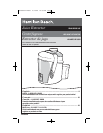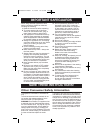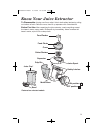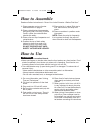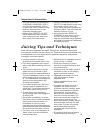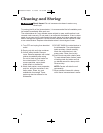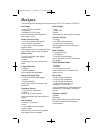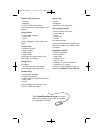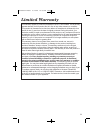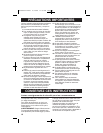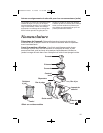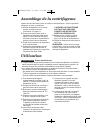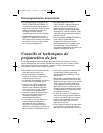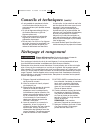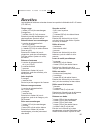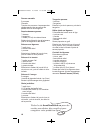
5
Important Information
• The juice extractor is manufactured
for NORMAL HOUSEHOLD USE. If
you have large quantities, such as
10 pounds or more, process in small
batches, allowing motor to cool
completely between uses.
• When juicing CARROTS, DO NOT
PACK food chute. Place carrots in
food chute one by one, and press
down gently with food pusher.
• DO NOT OVERLOAD THE FOOD
CHUTE. For best results, simply drop
food pieces, one at a time, into
chute. Gently and slowly press down
with food pusher. This will extract the
maximum amount of juice.
• If the juice extractor SEEMS TO
STRUGGLE or slow down, turn the
unit OFF and unplug. Thoroughly
wash the cutter/strainer and separator
according to instructions. Reassemble
and continue juicing.
• Juicing avocados or bananas
produces a puree rather than a juice.
• Form leafy vegetables into compact
balls or rolls before inserting into food
chute.
• One pound of raw produce usually
yields one cup (8 ounces) of juice.
• When working with large quantities of
fruits and vegetables, be sure to stop
unit to empty pulp bin as it begins to
fill. The cutter/strainer should also be
cleaned, since the extraction will
decrease considerably.
• If you desire a clear juice, filter juice
through layers of cheesecloth or a
coffee filter. This will also remove any
foam which results during juicing.
• To keep juices from discoloring
during storage, add a few teaspoons
of lemon juice.
• Serve juices immediately, since the
flavor and nutrient content decreases
rapidly when juices are stored. If it
is necessary to juice fruits and
vegetables some time before serving,
cover container tightly and refrigerate.
Do not store for more than 24 hours.
• The flavor, color, and consistency of
freshly juiced fruits will be different
from canned juices.
• Substitute fruit or vegetable juices for
stock or water in cooking.
• Some pulp remaining in juice is
normal. It increases the juice’s flavor
and nutritive value.
• Potato juice can be used in place of
cornstarch or flour as a thickening
agent in gravies and soups.
• Vegetable juice mixed with carrot
juice will produce a sweeter
vegetable flavor.
• Freeze vegetable pulp for use in
making soups.
• The softer the texture of a fruit or
vegetable, the thicker the juice
produced. Apricots, peaches, pears,
melons, and strawberries are soft-
textured fruits. The juice that is
extracted from these fruits is very
thick and is known as nectar. It is
best to combine these juices with
thinner juices, such as carrot or
apple. Beet greens, parsley, spinach,
and watercress yield very rich and
thick juices. They are very strong-
flavored and taste best when
combined with other fruits and
vegetables.
• The optional sieve may be used to
further reduce pulp and foam.
Juicing Tips and Techniques
Wash fruits and vegetables thoroughly. Remove pits, stones, and large seeds
from apricots, cherries, peaches, plums, etc. Remove rind from thick-skinned fruits
and vegetables such as oranges, lemons, grapefruit, tangerines, watermelons,
pineapples, and winter squash.
840095502 ENv03 9/12/08 10:59 AM Page 5



